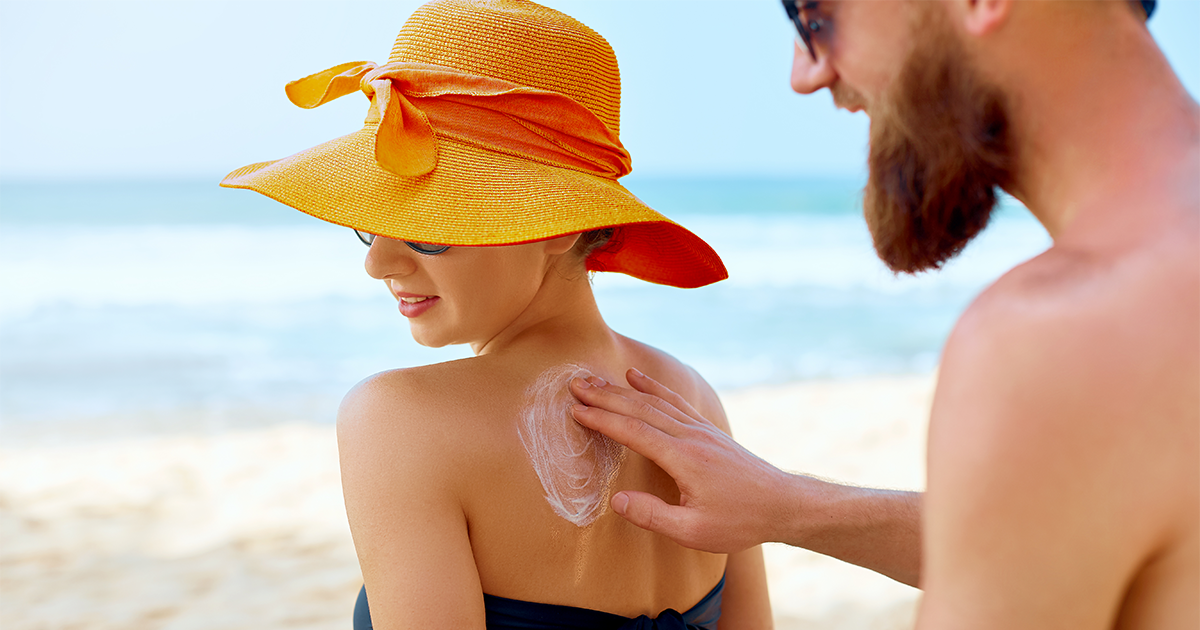
One of every five Americans will get skin cancer during their lifetime, and approximately 9,500 people in the U.S. are diagnosed with skin cancer every day. Too much sun exposure can take a significant toll on your skin and your health. From painful sunburns to sun poisoning to heat rash, the sun’s rays can cause lasting damage – and that’s where vybe urgent care comes in.
You may think you’re protecting yourself by using any sunscreen with SPF (sun protection factor), but not all SPFs are created equal. Read on to learn more about how to pick your perfect SPF and when to visit your nearest vybe for post sun-related treatment.
The American Academy of Dermatology recommends choosing a sunscreen that says:
The Skin Cancer Foundation recommends applying sunscreen 30 minutes before you go outside and then reapplying every two hours, regardless of SPF, and immediately after swimming or sweating.
Even the best sunscreen won’t protect your skin if you don’t apply it correctly. Use one ounce of sunscreen – enough to fill a shot glass – to cover your entire body. For just your face, a nickel-sized dollop should work.
Yes! Regardless of the sunscreen used you can still get a tan. No sunscreen products on the market today offer 100% protection from UV rays. SPF 30 filters out approximately 97% of all incoming UVB rays, while SPF 15 filters out approximately 93%.
So even at the recommended SPF 30 level, a small amount of UV rays can and do still get through. But remember, even when using SPF, tanning will damage your skin.
Without 100% protection, wearing a broad-spectrum sunscreen with SPF may still not be enough to prevent sunburns, skin cancer, and other damage. Thankfully, there are steps you can take to maximize sun protection on your own:
Most people without sensitive skin can use the same sunscreen on their face that they use on their body.
However, for people with sensitive skin, sunscreens that are formulated for the body can cause skin irritation or breakouts. Sunscreens designed specifically for the face are often oil-free, which means they won’t clog pores, and include other additives that are gentler on skin.
Both physical and chemical sunscreens protect against damaging UVA and UVB rays.
Physical or mineral sunscreens, which primarily use zinc oxide and titanium dioxide as active ingredients, are typically preferred by people with sensitive skin. These sunscreens reflect UV rays, serving as a barrier that prevents the rays from penetrating your skin. The downside of physical sunscreens is they can often leave white streaks on the skin and are not always water resistant.
Chemical sunscreens contain ingredients like avobenzone, homosalate, and “the O’s” (octocrylene, octinoxate, octisalate, and oxybenzone). These chemicals absorb UV rays, turning them into non-harmful rays of heat that are released from your skin. Chemical sunscreens are not the best choice for people with sensitive skin and only become effective 20 minutes after application.
Whatever type of sunscreen product you choose, it’s most important to select one that is broad-spectrum and has an SPF of 30 or higher. Whatever type of sunscreen product you choose, use it daily.
Painful redness, blisters, and peeling are all signs of a severe sunburn. If you have any of the following symptoms, seek medical care right away:
vybe can evaluate your sunburn to determine how severe it is and either provide treatment or refer you to a specialist, if needed.
Most minor sunburns resolve themselves in a week or so. Over-the-counter pain relievers, cool showers or baths, and aloe vera moisturizers can help soothe sunburned skin. Be sure to drink extra water to prevent dehydration and stay out of the sun as you heal.
When sunburns, sun poisoning, and other heat-related conditions threaten to spoil your summer, you can count on vybe for fast, convenient care. We’re open seven days a week with extended weekday evening hours to serve you.
All vybe clinics have licensed professionals with a wide range of healthcare knowledge who can provide care for sun exposure, heat, and other related illnesses.
Walk in or schedule an appointment at your local vybe urgent care today.
FIND YOUR VYBE